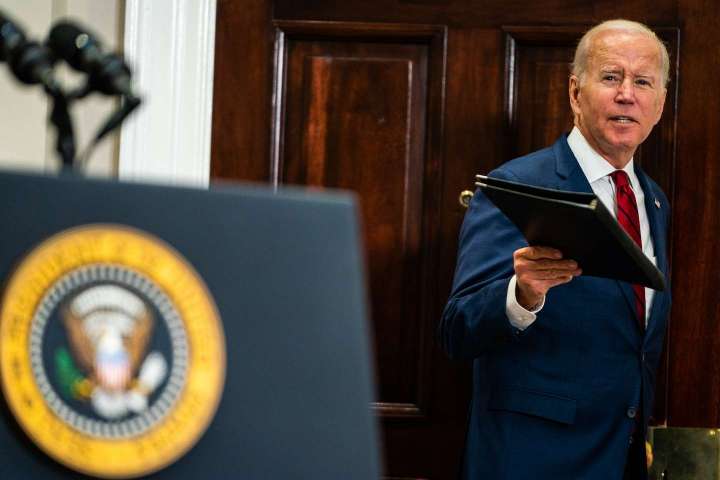President Biden declared that “the pandemic is over” and now is trying to walk it back. Little wonder: With just a few words in a “60 Minutes” interview, Biden completely undermined his administration’s legal justification for student loan forgiveness.
If the pandemic is ‘over,’ so is Biden’s authority to forgive student debt

In an August memo explaining the legal basis for Biden’s student loan forgiveness plan, Education Department general counsel Lisa Brown claimed that emergency authority includes a “national emergency, such as the present COVID-19 pandemic.” This is absurd. The Heroes Act explicitly states that it is intended to help the “hundreds of thousands of Army, Air Force, Marine Corps, Navy, and Coast Guard reservists and members of the National Guard [who] have been called to active duty or active service.” It authorizes the secretary of education to forgive or modify their loans in response to a “national emergency, regardless of the location at which such active duty service is performed.” There is no way to read this law as justifying debt relief for an entire class of individuals who never wore the uniform.
Biden is not even trying to conform with the intent of the law — by, for example, perhaps extending loan forgiveness to first responders and front-line medical workers who risked their lives during the covid-19 pandemic. He’s driving a steam engine right through the plain text of the law and providing mass debt forgiveness for those who did not serve in any capacity in a national emergency — and using the pandemic as justification.
But now that Biden has declared the pandemic “over,” his justification for abusing this law has evaporated. Walking through the Detroit Auto Show, Biden told CBS correspondent Scott Pelley, “If you notice, no one’s wearing masks. Everybody seems to be in pretty good shape.” He said, “We still have a problem with covid. We’re still doing a lotta work on it. But the pandemic is over.”
That means what his administration’s lawyers called a “national emergency, such as the present COVID-19 pandemic,” is no longer “present.” And if the pandemic is no longer present, neither is the legal basis for using it to forgive student loans.
Of course, consistency has never been Biden’s strong suit. In the spring, his administration announced it was lifting Title 42 — the Trump-era public health order that allows border officials to turn away illegal migrants in order to prevent the spread of covid-19 — because Biden’s Centers for Disease Control and Prevention declared it was “no longer necessary” since we now have “an increased availability of tools to fight COVID-19” and “97.1% of the U.S. population lives in a county identified as having ‘low’ COVID-19 Community Level.”
In other words, Biden effectively declared the pandemic emergency over for illegal migrants at the border, but then a few months later invoked it to justify student loan forgiveness. Then he (again) declared the pandemic “over” — even as his administration submits an emergency request to Congress for $27 billion in pandemic spending before the end of the year.
The formal pandemic emergency declaration expires on Oct. 13, unless Biden extends it for an additional three months. If he fails to do so, then not only will he no longer have legal justification for student debt forgiveness, but he will also lose the basis for other pandemic-justified social spending — such as the emergency Medicaid expansion, which the nonpartisan Congressional Budget Office estimates added to the program some 13 million Americans who would otherwise make too much money to qualify, at a cost of nearly $10 billion a month.
So, in all likelihood, Biden will follow his declaration that the pandemic is “over” by soon extending the pandemic emergency declaration. Because if Republicans regain the majority in just one house in November, the ability to pass Democrats-only spending bills will evaporate — which means the pandemic emergency will be all Democrats have left to continue their miasma of fiscal profligacy.






